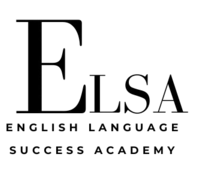This quiz is designed to help you improve your business English vocabulary by focusing on different aspects of word usage, meanings, and spelling. The quiz consists of five sections with 15 questions in total. Answer each question carefully, and at the end, you’ll receive a score along with feedback and advice based on your performance.
Section 1: Choose the Missing Word (5 questions)
Complete each sentence by choosing the correct word from the three options.
Question 1:
The company is planning to __________ new strategies to boost productivity.
- A) imply
- B) implement
- C) imitate
Question 2:
Our marketing campaign was very successful, and we saw a significant __________ in sales.
- A) increase
- B) incline
- C) inflation
Question 3:
She was promoted to a leadership position due to her __________ in handling complex projects.
- A) efficiency
- B) efficacy
- C) effect
Question 4:
The CEO is known for his __________ decision-making during crises.
- A) rationale
- B) rational
- C) ratify
Question 5:
We need to __________ the contract before we proceed with the partnership.
- A) revise
- B) review
- C) revert
Section 2: What’s the Opposite? (3 mini quizzes)
Identify the opposite of the given word.
Mini Quiz 1:
The opposite of expansion is:
- A) growth
- B) contraction
- C) extension
Mini Quiz 2:
The opposite of profit is:
- A) revenue
- B) loss
- C) expense
Mini Quiz 3:
The opposite of approval is:
- A) rejection
- B) permission
- C) acceptance
Section 3: Sound Similar (3 questions)
Complete the sentence by choosing the correct word. Be careful—some words sound alike!
Question 1:
The board of directors reached a __________ on the budget for the next quarter.
- A) consent
- B) content
- C) contempt
Question 2:
The CEO’s __________ speech inspired all the employees to work harder.
- A) principal
- B) principle
- C) print
Question 3:
Please ensure that the proposal is __________ before sending it to the client.
- A) complement
- B) compliment
- C) complete
Section 4: Definitions (3 questions)
Choose the correct definition for each business term.
Question 1:
What is diversification?
- A) The practice of entering new markets or industries to reduce risk
- B) Increasing the production of a specific product
- C) Reducing the number of product offerings in a portfolio
Question 2:
What does stakeholder mean?
- A) An individual or group that has an interest in the company’s decisions
- B) A company’s competitor in the marketplace
- C) A customer who regularly purchases products
Question 3:
What is liquidation?
- A) The process of ending a business and selling off its assets
- B) The expansion of a business into new markets
- C) Increasing a company’s workforce
Section 5: What’s the Spelling? (3 questions)
Identify the correctly spelled word.
Question 1:
Which word is spelled correctly?
- A) Entrepreneur
- B) Enterprenur
- C) Entreprenure
Question 2:
Which word is spelled correctly?
- A) Accredation
- B) Accreditation
- C) Acreditation
Question 3:
Which word is spelled correctly?
- A) Reimburse
- B) Reemburse
- C) Reimburrse
Answer Key and Explanations:
Section 1: Choose the Missing Word
- B) implement – To implement a strategy means to put it into action.
- A) increase – A successful campaign often leads to an increase in sales.
- A) efficiency – Efficiency refers to the ability to handle tasks effectively.
- B) rational – Rational decision-making is logical and sound.
- B) review – To review a contract means to carefully examine it before making a decision.
Section 2: What’s the Opposite?
- B) contraction – The opposite of expansion is contraction, which means to shrink.
- B) loss – The opposite of profit is loss, referring to negative financial outcomes.
- A) rejection – The opposite of approval is rejection, meaning disapproval.
Section 3: Sound Similar
- A) consent – Consent means agreement, whereas content refers to the substance of something, and contempt means disdain.
- A) principal – In this context, principal refers to the main or most important element.
- C) complete – Complete means to finish something, while complement refers to something that goes well with another, and compliment is a form of praise.
Section 4: Definitions
- A) The practice of entering new markets or industries to reduce risk – Diversification helps spread risk by not relying on a single market or product.
- A) An individual or group that has an interest in the company’s decisions – Stakeholders can be employees, shareholders, customers, or anyone affected by the company’s actions.
- A) The process of ending a business and selling off its assets – Liquidation occurs when a business winds down and its assets are sold.
Section 5: What’s the Spelling?
- A) Entrepreneur – This is the correct spelling for someone who starts and runs a business.
- B) Accreditation – Accreditation refers to official recognition or certification.
- A) Reimburse – This is the correct spelling for compensating someone for an expense.
Scoring and Feedback:
- 12-15 correct: Excellent! Your business English vocabulary is very strong. Keep practicing to stay sharp and expand even further.
- 8-11 correct: Good job! You have a solid grasp of business terms, but there’s room to strengthen your understanding of more nuanced meanings and spellings.
- 4-7 correct: Fair effort, but you might want to focus on areas like word choice, opposites, and spelling. Reviewing key business vocabulary terms can significantly boost your confidence.
- 1-3 correct: It seems you’re struggling with some core business vocabulary concepts. Consider focusing on foundational terms, definitions, and common word forms. Regular practice with real-world business articles or conversations will help.
Keep practicing and reviewing these terms, and you’ll see improvement in your business English skills over time!






